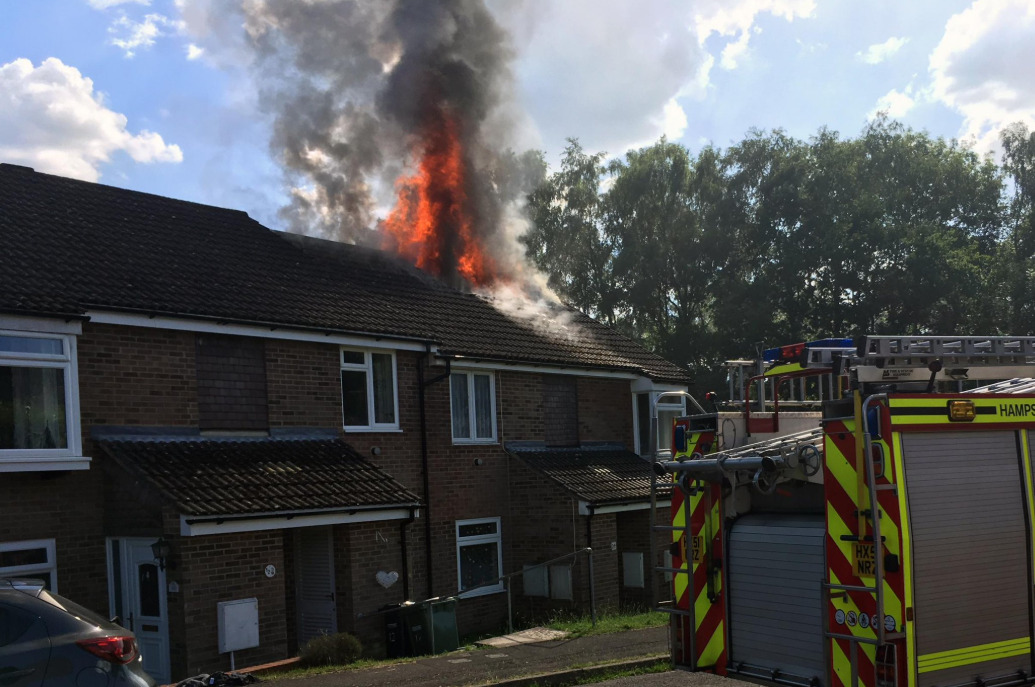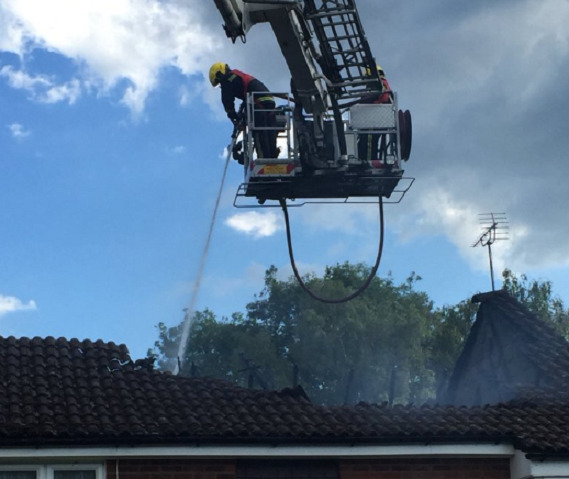
Hampshire Fire Control has confirmed the fire was caused by an electrical fault within the solar panels. Image: Twitter @dailyecho.
An electrical fault with a solar panel installation has been confirmed as the cause of a fire in Hampshire over the weekend that destroyed the roof of a house and left a man in hospital.
Fire crews from four stations in the area were called to the property in Wellbrooke Gardens in Chandlers Ford, Eastleigh at around 4pm on Sunday after the blaze broke out.
Firefighters were at the scene until 7:29pm to deal with what station commander Paul Riddell described as a “significant property fire”, with initial reports from Portchester Fire station claiming only that the fire “involved solar panels on the roof”.
However, Hampshire Fire Control has this morning confirmed to Solar Power Portal that the fire was caused by an electrical fault within the solar panels, which left the 76 year old man in hospital. He was treated for minor injuries.

Firefighters attended the scene for over three hours. Image: Twitter @paulrids.
Following another serious rooftop fire at a primary school west of Manchester back in March, the latest incident will bring solar panel safety back into the spotlight.
A report published by the Building Research Establishment almost a year ago found that fires involving solar panels are most commonly caused by errors in the installation process rather than any particular technological faults in the panels themselves.
More than a third (36%) of the over 50 incidents analysed by the report were attributed directly to problematic installations, with just 12% down to faulty products and 5% down to system design. The remaining 47% could not be attributable to any one root cause.
BRE made a series of recommendations to be passed down to installer by the Microgeneration Certification Scheme, while the Solar Trade Association (STA) – which backed BRE’s recommendations – said that the report had confirmed that incidents of fires with solar PV installations were very rare.
Speaking to SPP this morning, the STA’s director of new markets and advocacy Léonie Greene explained that the government funded BRE report showed that suggests the risk of a fire caused by a PV system is 1 in 80,000 – much lower than with other common electrical equipment.
Addressing the issue of installer errors, she added: “If you employ MCS certified installers using certified equipment, as required if you are claiming feed-in tariffs, it is extremely unlikely that your solar system will develop a dangerous fault.
“Nevertheless all incidents of fire are taken very seriously by the industry. The detailed findings of the BRE research have been used to strengthen guidelines for installers and designers, and for the fire services.
“Overall solar has an excellent fire safety record but every opportunity to make an extremely safe technology even safer is being taken. The industry is very keen to retain maximum safeguards for consumer protection within the post FIT framework and incidents like this [at Wellbrooke Gardens], however rare, underline why that is so essential.”

